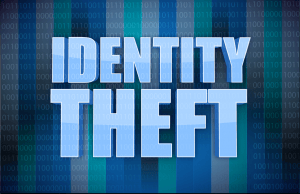Identity Theft Protection
 How to Protect Your On-line Reputation and Identity
How to Protect Your On-line Reputation and Identity
In addition to on-line reputation management, you should also secure yourself against identity theft protection. These days, there’s no limit of crazy spooks out there eager to take advantage of your name and identity to have their way with it.
Starting from the first time you create a social media profile, create a blog or register an email address, you’re creating an online identity for yourself. Your online identity might hold a different personality than your offline, or real-world, personality, but nonetheless, you create a distinctive profile once it exists. And let’s take the time to establish right now, that, yes, even if parts of your on-line reputation include false flag information – you know, things that simply aren’t true about you – they’re still compiled into your digital reputation.
Having fun with your online persona may be fun on the internet, but it’s still important to maintain safety with respect to your on-line reputation management practices. When you’re not careful with your identity, you leave it open to scams, theft and other challenges that are tough to get rid of. Here are some best practices for information security that will help you protect your on-line reputation.
Identity Theft Protection & On-line Reputation Management: Best Practices
 1. Maintain strong digital privacy on your profiles.
1. Maintain strong digital privacy on your profiles.
You know the easiest thing you can do right now? Lock down all of your social media profiles. Keep them private as much as possible, whenever possible. You want to maintain privacy because if your profiles aren’t locked, you’re giving the world a full frontal view of your personal life – and that means anyone who accesses your profiles can copy, take screenshots of or save information that you may not want them to have.
2. Keep a clean image.
I love being as wild and free as the next person, but let’s be honest: Once something’s online, it’s always online, stored forever. Having a moment of fun that you share with your friends and family on Facebook seems harmless, but a hefty 37 to 50 percent of potential employers investigate job candidates via social media. And they don’t need to be personally linked to your profile in order to see what you’re about. There have been several cases where employers will ask a candidate’s friend to log in so they can take a look at the potential employee’s social media profile. (Yes, it’s skeevy, it’s creepy, and it’s completely unfair and inappropriate. But it happens all the time.)
3. Secure personally identifying and sensitive information.
 Using your first and last name online is alright in most circumstances, but by personally identifying information, we’re clearly referring to things most people don’t need to know. For example, most people you meet need your first name, and maybe your last. But they won’t need your social security number, government, federal or student ID numbers, your driver’s license information, address, phone number or bank/credit card information. Unless the information is for a clear and specifically identifiable purpose, keep financially and personally sensitive information to yourself. This is crucial for identity theft protection. Oh – and when you actually do share, make sure your information is shared in a secured, highly-encrypted digital environment where chances of it being phished or hacked are minimal.
Using your first and last name online is alright in most circumstances, but by personally identifying information, we’re clearly referring to things most people don’t need to know. For example, most people you meet need your first name, and maybe your last. But they won’t need your social security number, government, federal or student ID numbers, your driver’s license information, address, phone number or bank/credit card information. Unless the information is for a clear and specifically identifiable purpose, keep financially and personally sensitive information to yourself. This is crucial for identity theft protection. Oh – and when you actually do share, make sure your information is shared in a secured, highly-encrypted digital environment where chances of it being phished or hacked are minimal.
For more information and reviews on different products you can visit: http://identity-theft-protection-services-review.toptenreviews.com. Need to know how you can help protect your family? Check out our Guide to Identity Theft Protection for Families: http://identity-theft-protection-services-review.toptenreviews.com/identity-theft-protection-for-families.html
This website runs on a patronage model. If you find my answers of value, please consider supporting me by sending any dollar amount via:
or by mailing a check/cash to PosiTek.net LLC 1934 Old Gallows Road, Suite 350, Tysons Corner VA 22182. I am not a non-profit, but your support helps me to continue delivering advice and consumer technology support to the public. Thanks!







Great post, Ben. I heard a podcast recently that spoke to some of these points. On the subject of landing or losing a job based on your online story the presenter said that we need to be active and aware about what’s online about us. And if you think the answer is to do nothing at all on the internet then think again. It’s a red flag for potential employers if they can’t find anything about you on the web.
Thanks Dylan! It amazes me that people still fail to recognize that online=forever (at least in the US) and that being involved with social media, partially waves a persons right to privacy. Who actually reads through the User Agreements before clicking on the “Accept” button? That being said… unless you’re a time traveler and our 21st Century ways are confusing to you, who lives in a bubble (without access wifi)? Its reasonable to assume that if you’re going to put something on the internet, someone is going to see it including current and prospective employers. So its best for people monitor their LinkedIn, not say anything discrediting about your employer on Twitter, and limit the number of drunk selfies they put on Instagram.
Drunk selfies on Instagram, LOL. I wonder if HR hiring/vetting office manuals have a written threshold for that, “No more than 2 per calendar year.” 🙂